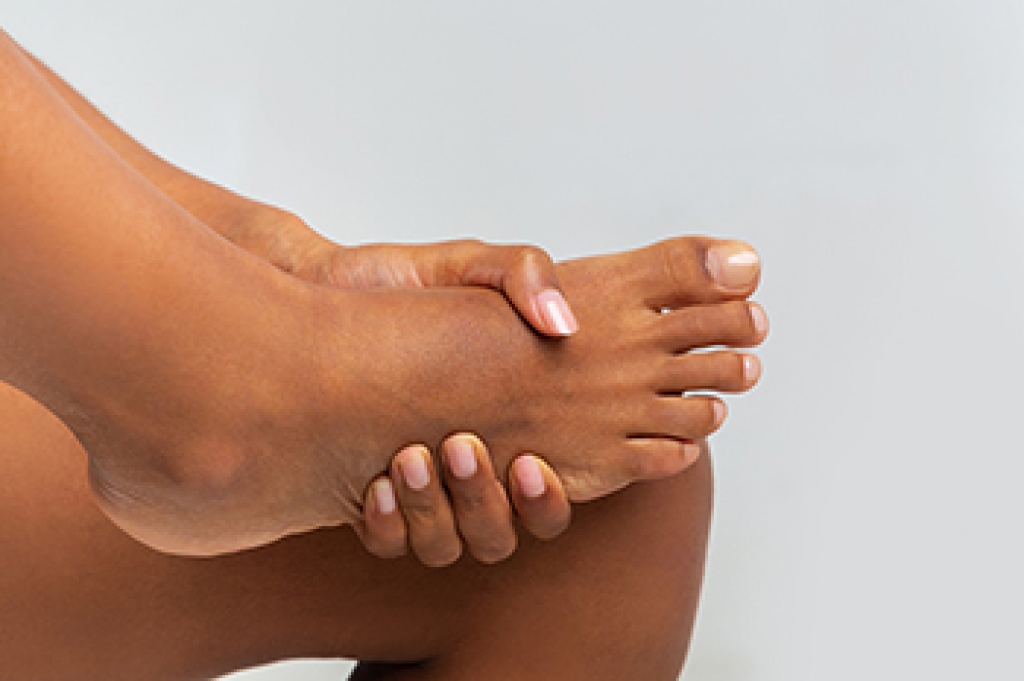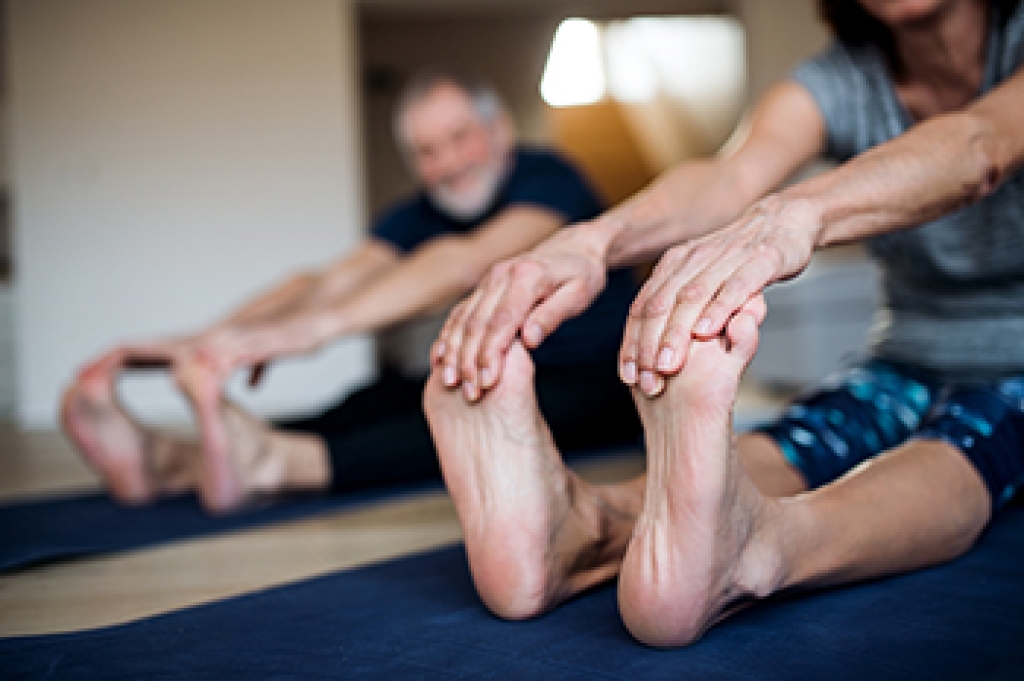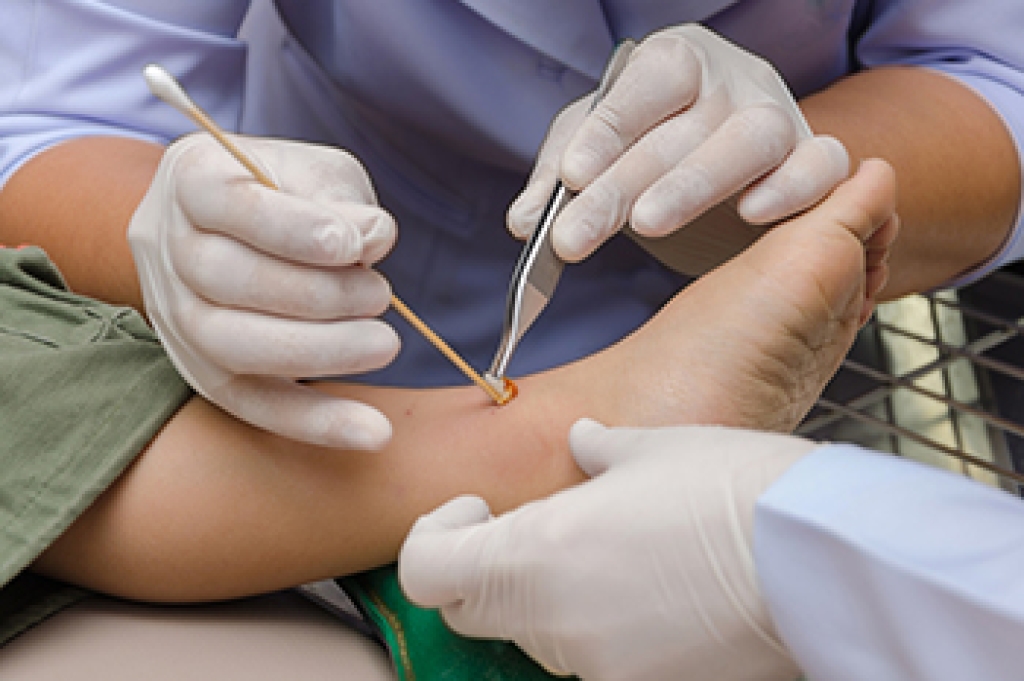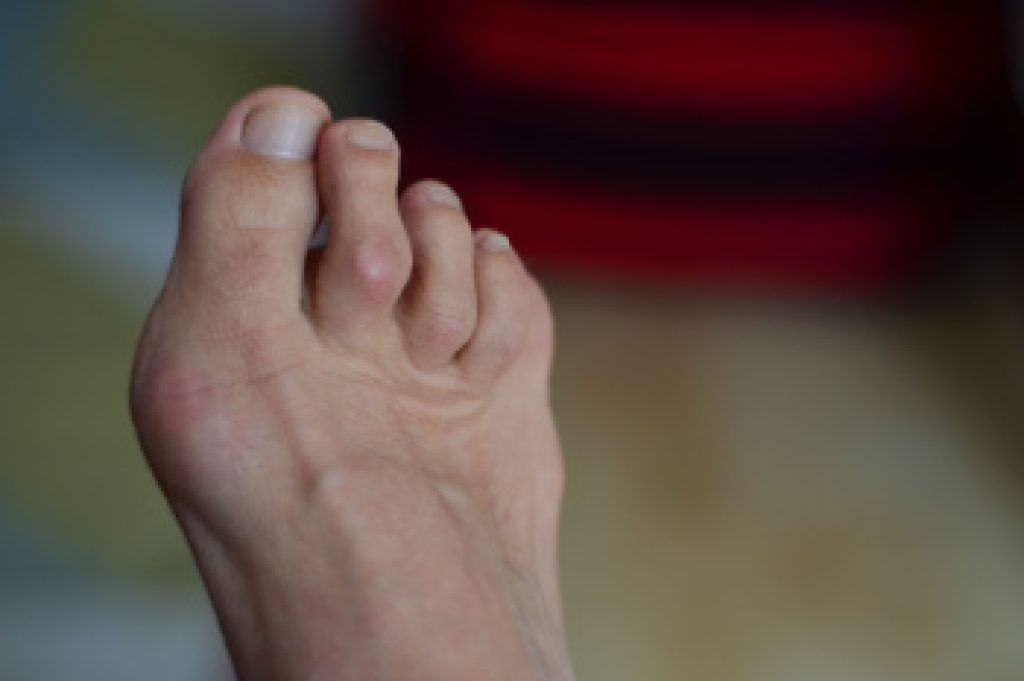
Common foot problems can affect people of all ages and activity levels, often developing gradually or after injury. They are frequently caused by wearing improper footwear, repetitive stress, abnormal foot structure, or underlying health conditions, such as diabetes or circulation issues. Symptoms include pain and swelling or visible changes in the skin or nails. The feet may look red, swollen, or have bumps like corns or bunions. Additionally, they can feel sore or tender when walking or standing. A podiatrist can help by beginning with a careful examination of foot structure, gait, and overall health, sometimes using imaging to diagnose the underlying issue. Treatment options include footwear adjustments, custom orthotics, targeted exercises to improve strength and flexibility, and therapies to reduce pain and inflammation. Early care supports long- term mobility and prevents complications. If you are experiencing foot issues, it is suggested that you schedule an appointment with a podiatrist.
Foot Pain
Foot pain can be extremely painful and debilitating. If you have a foot pain, consult with one of our podiatrists from Toe-Tal Family Foot & Wound Care Professionals . Our doctors will assess your condition and provide you with quality foot and ankle treatment.
Causes
Foot pain is a very broad condition that could be caused by one or more ailments. The most common include:
- Bunions
- Hammertoes
- Plantar Fasciitis
- Bone Spurs
- Corns
- Tarsal Tunnel Syndrome
- Ingrown Toenails
- Arthritis (such as Gout, Rheumatoid, and Osteoarthritis)
- Flat Feet
- Injury (from stress fractures, broken toe, foot, ankle, Achilles tendon ruptures, and sprains)
- And more
Diagnosis
To figure out the cause of foot pain, podiatrists utilize several different methods. This can range from simple visual inspections and sensation tests to X-rays and MRI scans. Prior medical history, family medical history, and any recent physical traumatic events will all be taken into consideration for a proper diagnosis.
Treatment
Treatment depends upon the cause of the foot pain. Whether it is resting, staying off the foot, or having surgery; podiatrists have a number of treatment options available for foot pain.
If you have any questions, please feel free to contact our office located in Vista, CA and Las Vegas, NV . We offer the newest diagnostic and treatment technologies for all your foot care needs.




